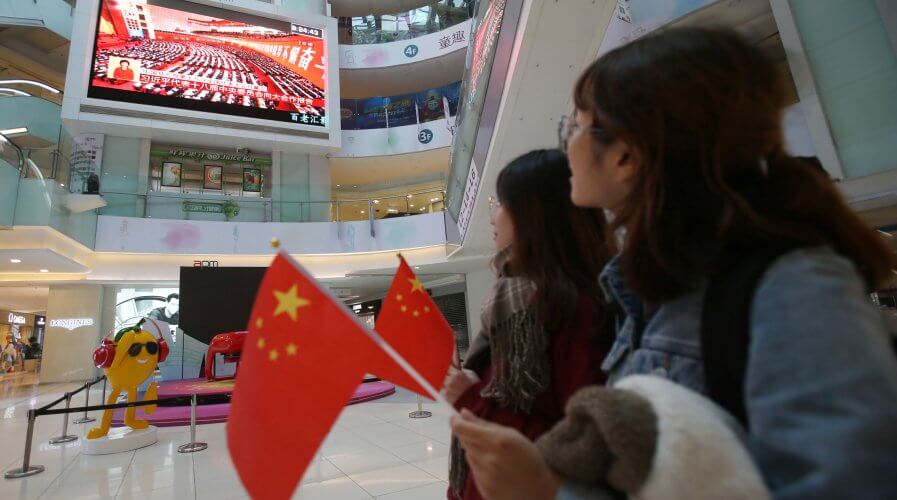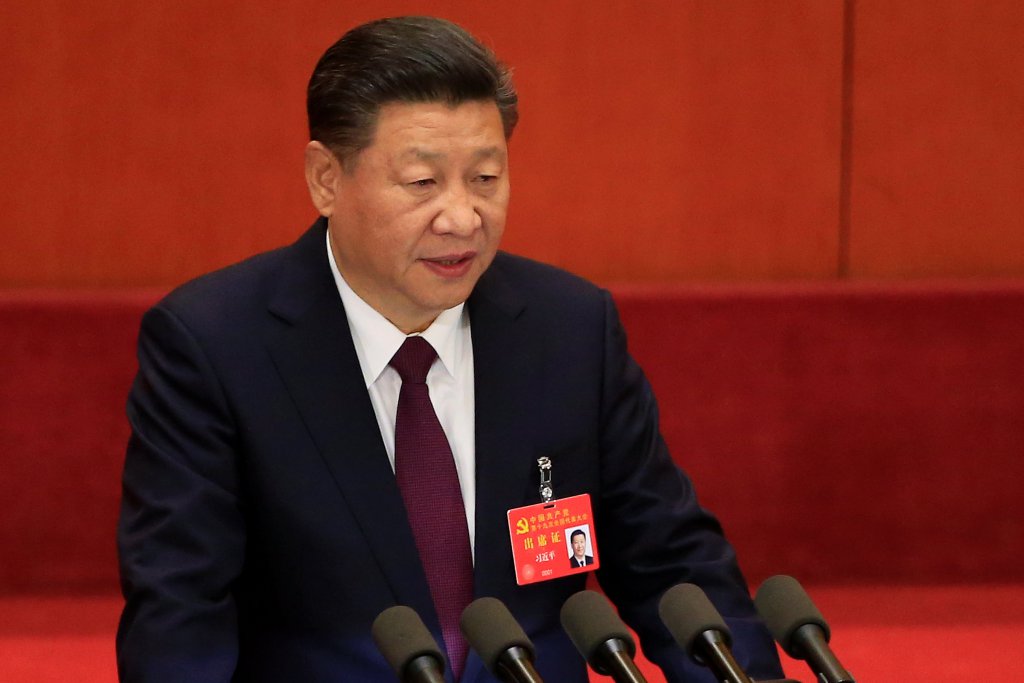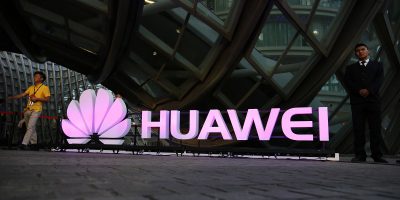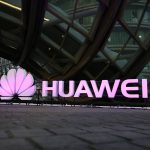
People watch a broadcast of Chinese President Xi Jinping delivering his speech during the opening of the 19th National Congress of the Communist Party of China, at a shopping mall in Beijing, China Oct 18, 2017. Source: Reuters.
How China is looking to become a ‘country of innovators’
IN recent years, China has expanded its reputation as an emerging global science and technology powerhouse and now president Xi Jinping is looking to bolster its image as a “country of innovators”, amid complaints of global trade imbalances and intellectual property theft.
During a speech at the opening of the Communist Party Congress on Wednesday, the leader outlined the nation’s technological ambitions of turning China into a “strong country” with more use of advanced technologies including Internet, big data, and artificial intelligence.
According to ABC News (via the Associated Press), the president urged party leaders to drive up development of the country’s tech industries in aerospace, cyberspace, and clean energy, among others, pledging to promote cooperation among universities, government research institutes, state companies and small enterprises.
“We will strengthen basic research in applied sciences, launch major national science and technology projects and prioritize innovation in key technologies,” he said.
But as Chinese companies emerge as global competition for their US and European counterparts in areas like smartphones and solar power, the country’s tech policies have been criticised over the limited market access.
The Chinese government has also been repeatedly accused of encouraging the theft of foreign know-how, as intelligence analysts said government operates a network of research centres and business parks to turn the stolen intellectual property into commercial products.
In May, Xi vowed to increase government support for technology companies in an attempt to raise the country’s competitiveness as concerns over protectionism grow.
With the Internet Plus and Made in China 2025 strategies, Xi looked to make Chinese firms world technology leaders, calling for progressive increases in domestic components in priority industries such as robotics and aerospace equipment, a Reuters report said.

Chinese President Xi Jinping speaks during the opening of the 19th National Congress of the Communist Party of China Oct 18, 2017. Source: Reuters
Foreign business groups, however, voiced concerns that such policies could limit foreign firms’ opportunities in China and ultimately starve innovation.
The foreign business community has also expressed frustration over China’s slow progress on promised market-opening reforms.
“Our biggest advantage is that we, as a socialist country, can pool resources in a major mission,” Xi said in May.
China also has a long-standing effort to ensure a firm grip on its sensitive tech infrastructure, especially where growing security threats such as terrorism was concerned.
The country’s technological prowess in defence was also touched during Xi’s address on Wednesday.
The Register quoted the president as saying that by the year 2020, military mechanization will be basically achieved, with big improvements in IT application and strategic capabilities.
Xi said by 2035, the country’s national defence and armed forces would be “modernised”, while the people’s armed forces will be transformed into a world-class military by the mid-21st century.
READ MORE
- The criticality of endpoint management in cybersecurity and operations
- Ethical AI: The renewed importance of safeguarding data and customer privacy in Generative AI applications
- How Japan balances AI-driven opportunities with cybersecurity needs
- Deploying SASE: Benchmarking your approach
- Insurance everywhere all at once: the digital transformation of the APAC insurance industry




